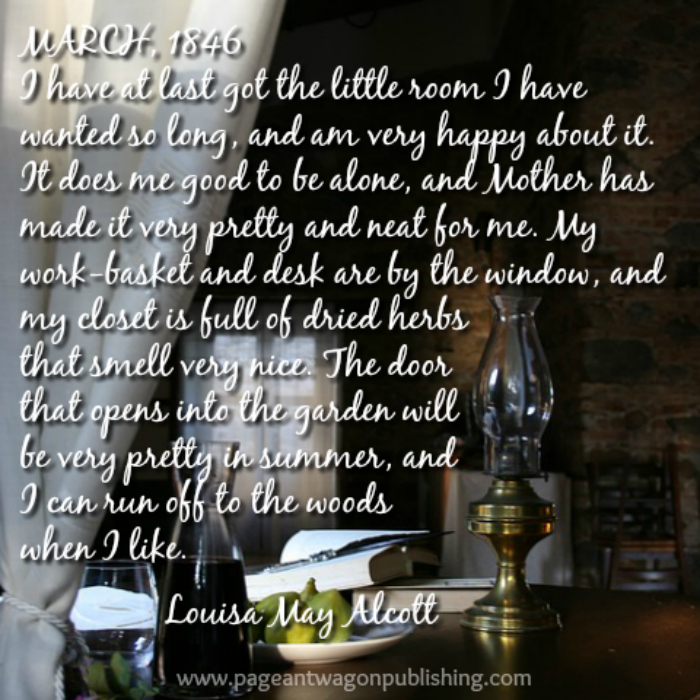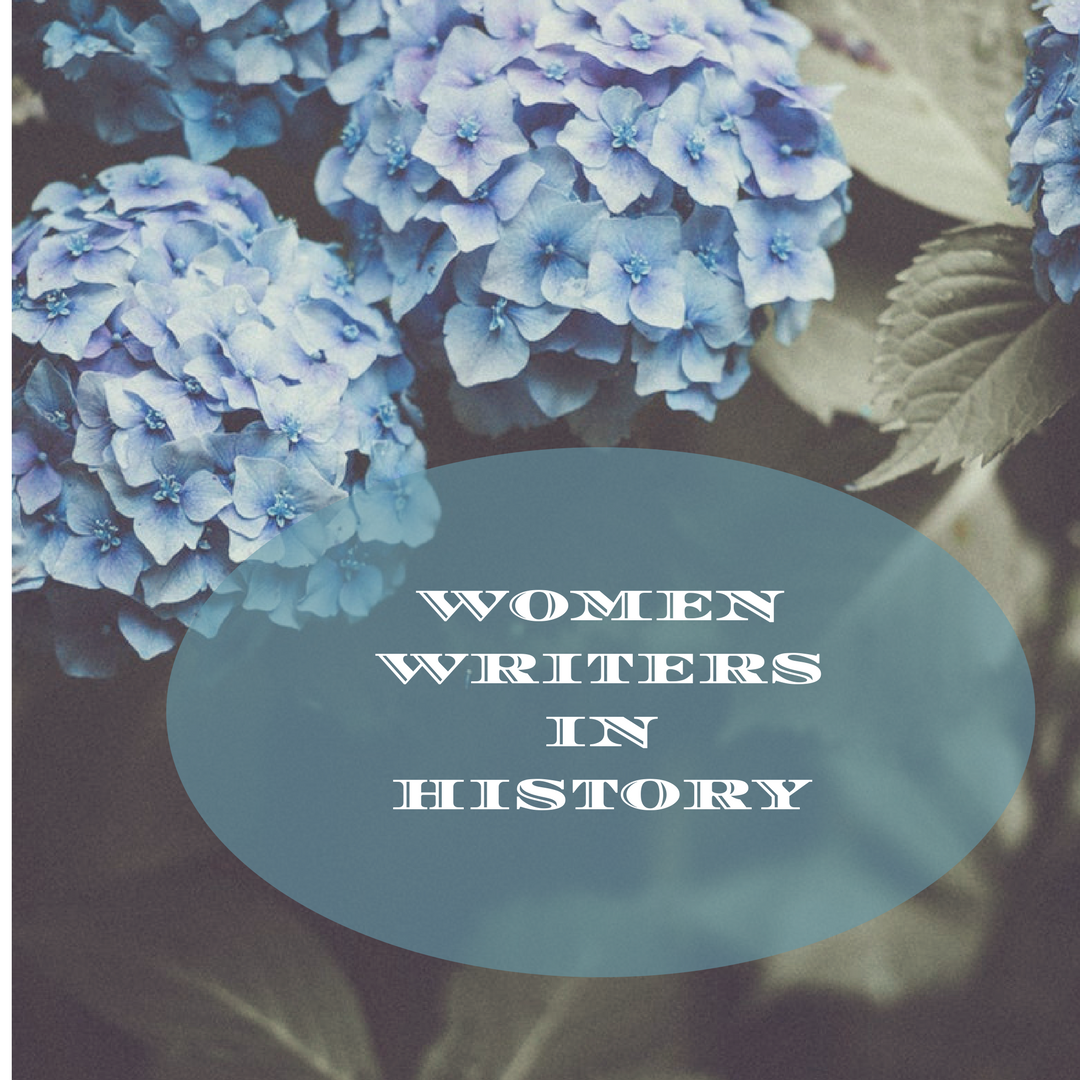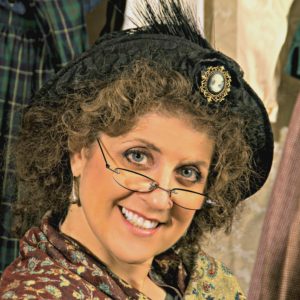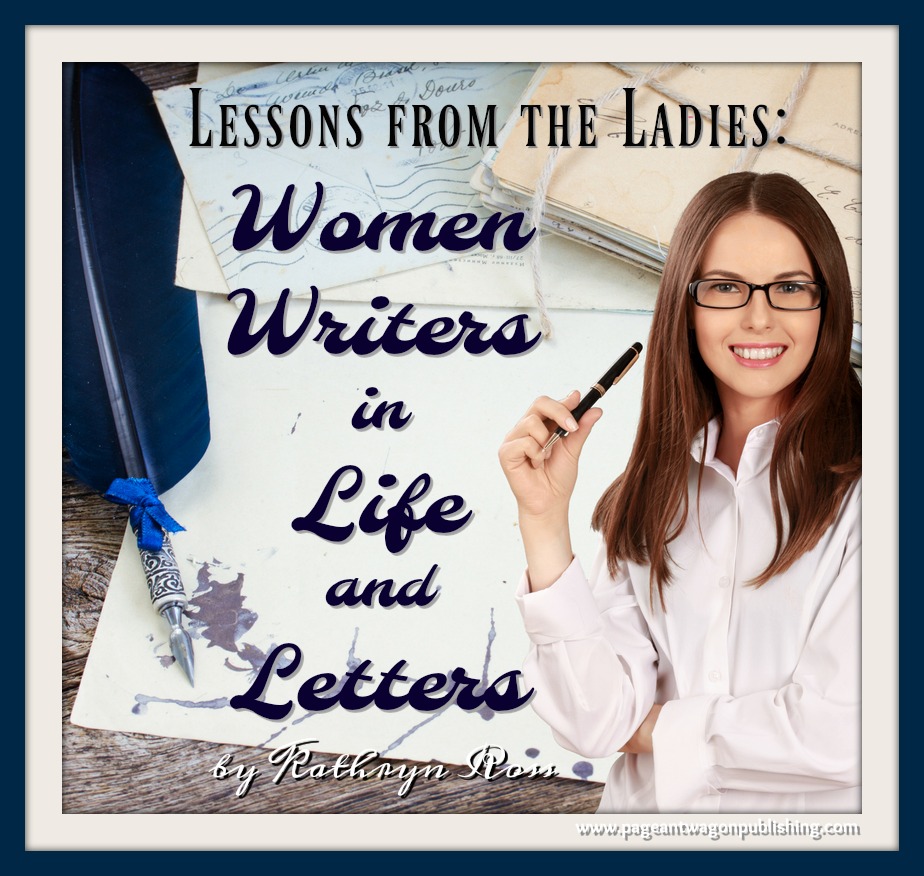The nineteenth century exploded with women writers expressing themselves in abandon through story and essay. Serious writers. Sensationalistic writers. Letter writers. Diarists and poets. The rise of the middle class in both America and England meant more women were educated, and well-read, writing for pleasure, purpose, and purse strings.
Louisa May Alcott wrote on all these accounts.
 Best known as the author of the classic, Little Women, Louisa infused herself intimately into the character of Jo, one of four sisters in a story loosely based on her own growing and coming of age years. Jo embodied the eager young artist Louisa saw herself to be. Not only did Jo possess an unbridled imagination, but a drive and determination to leave her mark on the world in an age when the acts of men led the charge through history.
Best known as the author of the classic, Little Women, Louisa infused herself intimately into the character of Jo, one of four sisters in a story loosely based on her own growing and coming of age years. Jo embodied the eager young artist Louisa saw herself to be. Not only did Jo possess an unbridled imagination, but a drive and determination to leave her mark on the world in an age when the acts of men led the charge through history.
I want to do something splendid before I go into my castle—something heroic, or wonderful—that won’t be forgotten after I’m dead. I don’t know what, but I’m on the watch for it, and mean to astonish you all, some day. I think I shall write books and get rich and famous; that would suit me, so that is my favorite dream.
― Louisa May Alcott, Little Women
In Louisa’s lifetime, 1832-1888, women tended to be relegated to supporting roles. Though, in reality, no moment in history ever materialized apart from the equal participation of both sexes. Men may have been the driving force in action, but apart from the powerful influence of women, history is incomplete.
Still, Miss Alcott lived through a time where she felt keenly the second-class nature of women as power brokers on the world stage. She was heavily influenced by the transcendentalist movement, her father being a strong proponent and teacher within the philosophy, hobnobbing with the likes of Emerson and Thoreau. Mr. Alcott was a tough taskmaster, with strong opinions on the rearing of children, often putting him at odds with his wife and daughters. One can only imagine how such a fierce mindset clashed with the artistically sensitive and creative mind of Louisa. It also didn’t help that his inability to maintain steady work and income forced the family to move 22 times in a 30-year period. From town to city to apartment to rented bungalows, a routine of constant uprooting and new surroundings provided a challenge for Louisa’s creative spirit.
Though she struggled in her relationship with a stern father, her mother’s sensitivity became a shield and comfort to her development as a writer. At the age of fourteen, she records in her journal:
March 1846—I have at last got the little room I have wanted so long and am very happy about it. It does me good to be alone, and Mother has made it very pretty and neat for me. My work-basket and desk are by the window, and my closet is full of dried herbs that smell very nice. The door that opens into the garden will be very pretty in summer, and I can run off to the woods when I like.
Finding a place to meet her muse in her own room fed her creativity and encouraged the gift within. Soon, the family would move again. And again. And again. Making the most of her situation in each move, Louisa’s focus sharpened, and her ambition took root. Submitting books and periodicals for publication, she earned an income to assist the family.
In 1868 she published Little Women, parts one and two, followed later by Jo’s Boys. One of my favorite parts of the book were the scenes in the attic room where Jo would go to meet her muse. There, drawings peppered the walls, costumes lay about, scattered here and there with random props necessary to playacting. Guests came to the attic by invitation only—her sisters being regular visitors and willing participants in Jo’s theatricals. But always there must be time to feed her imagination with solitary reading, and then pour out her musings on reams of paper.
Every few weeks she would shut herself up in her room, put on her scribbling suit, and fall into a vortex, as she expressed it, writing away at her novel with all her heart and soul, for till that was finished she could find no peace.
― Louisa May Alcott, Little WomenWhen the writing fit came on, she gave herself up to it with entire abandon, and led a blissful life, unconscious of want, care, or bad weather, while she sat safe and happy in an imaginary world, full of friends almost as real and dear to her as any in the flesh.
― Louisa May Alcott, Little Women
Pulling apart her 1846 journal entry above, regarding the room her mother made for her—a creative habitation, the power of place, the secret place to meet her muse—I discovered some universal truths that all writers can glean from those few lines as we, too, must make our own place to meet our muse and “fall into a vortex” :
I have at last got the little room I have wanted so long—Sometimes, finding the perfect place of escape to feed your imagination and allow creative juices a free flow requires patience. Seasons of snatching snippets of time in shared spaces challenge every writer. As a young mother, my writing life shared space and time with toddlers, toys, and the dining room table. Moving eighteen times in twenty years as a Navy wife, I didn’t always have the luxury of a writing space. Carving out the power of place in the corner of the living room or the side of my bed sufficed until the day I could rejoice in my “little room” that “I have wanted so long.” Be patient. Keep writing. Always hope.
It does me good to be alone—No writer can truly grow to their full potential apart from protracted times of aloneness. No writer seeking space and time to be alone is ever lonely. In the alone space, God’s presence embraces the eager listener. Meeting with the Divine Muse to fulfill your calling of writer and storyteller in the inspiration of the Holy Spirit, requires the deliberate act of pulling aside to be alone. With God. With your thoughts. With the elements of the story you want to tell laid before you without interruption or competition. Writers thrive in the alone place.
Mother has made it very pretty and neat for me—Visual aesthetics feed the creative muse. Taste matters, though. Minimalists prefer stoic, simple settings with little clutter. But, some artists thrive in the chaos of a studio overflowing with the tools of their craft, souvenirs, and favorite things. For me, I find blank walls distracting. My thoughts turn to the sort of wall grouping that would best fill the space. I prefer to saturate my creative spaces with the material objects that inspire me or relate to the project I may currently be working on. Books permeate and inform my power of place. Artfully arranged framed prints, antiques, and select collectibles create a comforting environment. At peace in my place, ideas root, sprout, bud, and blossom in turn. Whether you prefer minimal or abundant eclectic arrangements, be sure they stimulate your eye as “pretty and neat.”
My work-basket and desk are by the window—Where do you sit when you write, think, pray? Louisa tucked herself by the window. Her eyes could easily take in the glories of God’s Creation outside while natural light and fresh air streamed through the paned portal. I have regular access to a little cottage by a lake near my home. It’s a wonderful place to escape to for prayer, study, and reflective thinking. I sit inside by a window overlooking the lush foliage and sparkling water in a tiny shaded inlet. The breeze blowing through the house refreshes me more than when I sit on the deck, hunkered down in a comfortable leather sofa, my lemon water, journal, and books within easy reach on a table next to me.
My closet is full of dried herbs that smell very nice—The five senses are gateways of information and inspiration. The sense of smell has the power to transport the mind to a related time and place where the scent was first experienced. There’s an Italian deli in my town that comforts me just to walk in the door, because it smells like my grandmother’s kitchen of cheese, spices, and tomatoes. It’s a scent I connect to my childhood, and sumptuous family dinners on Sunday afternoons—long ago. The dried herbs in Louisa’s closet scented her small room with relaxing and medicinal aromas, powerfully ministering to her mind and imagination. Essential oils and diffusers, readily available today, create a fragrant environment in your secret space to either relax or stimulate mind and imagination.
The door that opens into the garden will be very pretty in summer—Louisa enjoyed the extension of her room into the garden ripe with flowers. A morning of labor in longhand on a story might tire wrist and mind. But a languid stroll around the flower beds in summer, located on the other side of the door to her room, heals and inspires. Allowing the muse of birdsong to captivate the ear, the playful antics of garden rabbits, chipmunks, and squirrels delight the eyes, and the silky-smooth touch of petals and leaves against the fingers while cutting a basket of stems for a vase, ministers healing to a weary writer, and renews the mind to return with fresh words flowing from the pen. Or in our day—on a laptop.
I can run off to the woods when I like—This is the romantic in Louisa. The romantic in me, too. Running carefree into the woods where all manner of inspiration lies. I spent my childhood playing and exploring in the woods around our home. As an adult, I wrote some of my best work within hours of escaping into woods, meadows, and even one glorious day, in the ruins of an abandoned dairy farm. I published some of those works in a collection designed for journal enthusiasts titled, Fragrant Fields: Poetic Reflections for Journaling. Many writers have intimate stories of secreting away into pockets of Creation, emerging from their retreat with fresh vision. Writer’s block is easily cured by such an adventure.
Currently, I’m in the process of re-arranging my secret place to meet my muse—my office and writing space with Miss Alcott’s checklist at the ready.
Journal Prompt: Where do you meet your writing muse? Do you have a secret place to escape to where you connect with your creative gift? How important is prayer and the guidance of the Holy Spirit to your writing life? How important is the physical surroundings of your writing retreat? How does your preferred physical setting bring you comfort and inspiration?
[bctt tweet=”#LouisaMayAlcott meets her muse for inspiration and writing in the power of place. Do you? Women Writers in Life and Letters Series @A3writers @misskathypwp” username=””]
[bctt tweet=”#Women Writers in Life and Letters—Louisa May Alcott: A Secret Place to Meet the Muse @A3writers @misskathypwp ” username=””]
Kathryn Ross
Writer, Inspirational Speaker, Literacy Enrichment Artist
Celebrating the Art of Reading ~ Developing a Family Literacy Lifestyle:
Reading Together, Learning Together, Loving Together
She blogs and podcasts at TheWritersReverie.com and PageantWagonPublishing.com. Connect with Miss Kathy on Facebook, Pinterest, Twitter, and LinkedIn.
“Be blessed and be a blessing!”






1 Comment
Beautiful post! My ideal place (my muse and I agree) would be a quiet cabin in the mountains. That is not where God has placed me though but I surround myself with things that remind me of the mountains, and just try to “bloom where I am planted.” Also, ashamed to admit I’ve never read Little Women. Moving it to the TBR list!